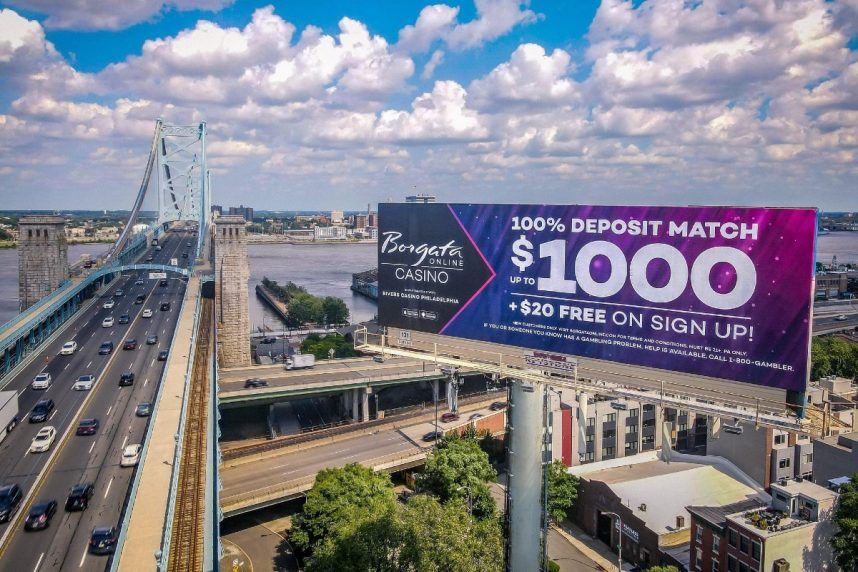Another iGaming Study Concludes Online Gaming Complements Brick-and-Mortar
Posted on: March 21, 2024, 09:07h.
Last updated on: July 26, 2024, 10:45h.
An iGaming study commissioned by the Sports Betting Alliance (SBA) has reached similar conclusions as another recent study that online casinos complement — not hurt — brick-and-mortar casinos.

The SBA is an industry trade group that lobbies federal and state lawmakers to pass legislation to legalize online gaming and provide consumer protections. The organization recently contracted Analysis Group to probe whether legal iGaming in the states where it’s currently allowed has helped or hurt legacy gaming.
Researchers analyzed data from six states with regulated iGaming — Connecticut, Delaware, Michigan, New Jersey, Pennsylvania, and West Virginia — and concluded that online slot machines and interactive table games have helped expand those state gaming industries. Gross gaming revenue (GGR) is up nearly 50% compared with levels before those states implemented iGaming.
The SBA counts four members, including DraftKings, FanDuel, BetMGM, and Fanatics Sportsbook. The study, The Potential Economic Impact of Legalizing iGaming on Casino Revenues in Five States, can be found here.
Friend or Foe
Since 2018, sports betting has rapidly expanded across the United States. Sportsbooks operate legally today in 38 states plus Washington, D.C. iGaming, however, has been slow to take hold.
Delaware and New Jersey have offered online casino games for more than a decade. Pennsylvania joined in 2018, and West Virginia casino platforms went live in 2020. Michigan and Connecticut came online in 2021.
While numerous sports betting bills found favor in state capitals across the country since 2021, no iGaming bills have been signed, aside from in Rhode Island. The Ocean State this month became the seventh state to allow people of gambling age to bet on slots and tables remotely.
iGaming is vastly more beneficial to states than sports betting, as gambling on sports is a small-margin business. Online slots and tables generate considerably more income and tax revenue. Many lawmakers have remained opposed to iGaming on concerns that slots and tables on a mobile phone pose higher risks for problem gambling.
Gaming interests like the SBA are campaigning to convince lawmakers otherwise. The Analysis Group study reached similar conclusions as a recent iGaming review conducted by gaming consultancy Eilers & Krejcik. Both reports say iGaming only helps land-based and riverboat casinos.
The SBA study concluded that casino revenue in five states — Illinois, Louisiana, Maryland, New York, and Virginia — would see retail win climb nearly two percentage points after introducing iGaming to their gaming markets.
In Maryland alone, the study found that land-based casinos would see an additional $224 million in increased revenue growth thanks to iGaming passage. Both the iGaming and land-based casino market would grow in the five years after passage — from a combined $2 billion in revenue a year in 2024 to $3.9 billion in 2029 (a 91% increase),” the SBA report read.
Analysis Group researchers said similar results were found in Illinois, New York, Virginia, and Louisiana.
2023 Results
Casino revenue in iGaming states might continue to climb despite online options. But some say the interactive gaming sites slow brick-and-mortar growth.
In the five commercial iGaming states, 2023 showed mixed data as to whether online casinos helped or hurt legacy play. But there’s no argument that retail play is growing considerably slower than iGaming, which continues to surge.
In the three richest commercial iGaming states, New Jersey, Pennsylvania, and Michigan, 2023 online casino revenue rose at least 15%.
New Jersey iGaming platforms grew revenue by 16% to $1.92 billion. Online casinos in Pennsylvania won 28% more money to $1.74 billion. Commercial online casinos in Michigan expanded revenue by 15% to $1.03 billion. Michigan also allows its tribes to operate iGaming platforms, meaning Michiganders lost more than $1.03 billion online.
Meanwhile, brick-and-mortar casino revenue in Detroit, the only place where commercial casinos operate in Michigan, fell 2.4% to $1.22 billion. Atlantic City casinos grew retail win by 2.2% to $2.84 billion and Pennsylvania’s 17 casinos saw in-person revenue climb just 1.6% to $3.43 billion.
Related News Articles
Indiana iGaming Could Inject State With Nearly $1B in New Tax Revenue
New York iGaming Political Ad Launched, Campaign Backed by Sportsbooks
Ukraine Seizes Almost $19M From iGaming Firm Accused of Tax Evasion
Most Popular
FTC: Casino Resort Fees Must Be Included in Upfront Hotel Rates
Genovese Capo Sentenced for Illegal Gambling on Long Island
NBA Referees Expose Sports Betting Abuse Following Steve Kerr Meltdown
UPDATE: Former Resorts World & MGM Grand Prez Loses Gaming License
Most Commented
-
UPDATE: Whiskey Pete’s Casino Near Las Vegas Closes
— December 20, 2024 — 30 Comments -
Caesars Virginia in Danville Now Accepting Hotel Room Reservations
— November 27, 2024 — 9 Comments -
UPDATE: Former Resorts World & MGM Grand Prez Loses Gaming License
— December 19, 2024 — 8 Comments -
FTC: Casino Resort Fees Must Be Included in Upfront Hotel Rates
— December 17, 2024 — 7 Comments
















No comments yet